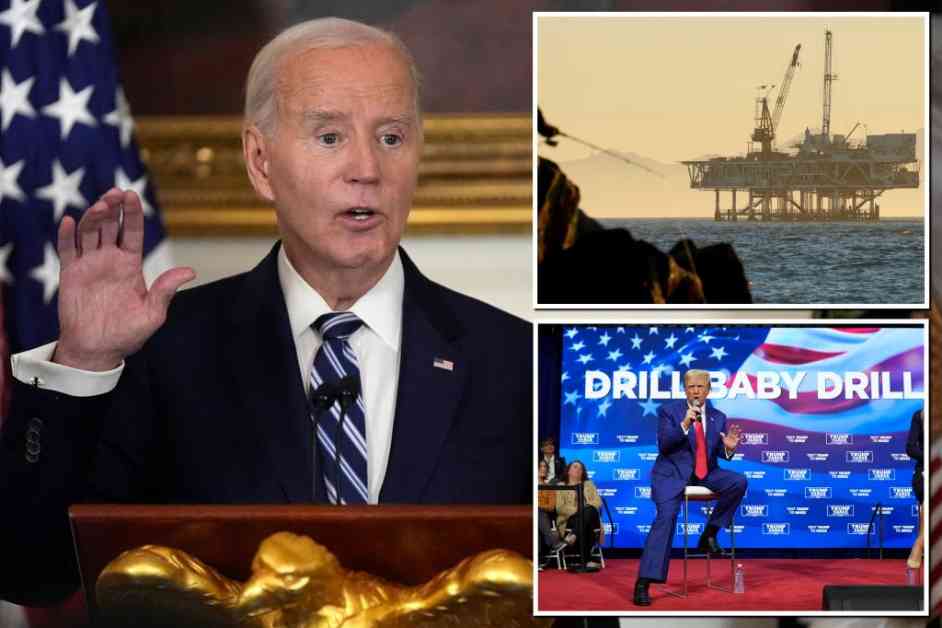President Biden made a significant move to ban new offshore oil and gas drilling in most US coastal waters, aiming to protect the environment and coastal communities from potential harm. This decision comes as a last-minute effort to prevent the incoming Trump administration from expanding offshore drilling.
Protecting Coastal Areas
Using his authority under the federal Outer Continental Shelf Lands Act, President Biden decided to safeguard offshore areas along the East and West coasts, the eastern Gulf of Mexico, and parts of Alaska’s Northern Bering Sea from future oil and natural gas leasing. This action covers more than 625 million acres of federal waters and demonstrates a commitment to environmental conservation.
Environmental Impact
Environmental advocates have praised Biden’s decision, emphasizing the importance of curtailing new oil and gas drilling to reduce greenhouse gas emissions. With 2024 being the hottest year on record, the need to address climate change and protect natural resources is more critical than ever. Joseph Gordon, campaign director for the environmental group Oceana, expressed gratitude to Biden for listening to coastal communities and upholding the bipartisan tradition of safeguarding coastlines.
Political Response
On the other hand, critics, including a spokeswoman for Trump, have criticized Biden’s action, accusing him of wanting high gas prices to be his legacy. The debate surrounding offshore drilling reflects broader discussions about balancing energy needs, environmental conservation, and economic interests. Biden’s proposed oil and gas lease sales in the Gulf of Mexico while avoiding new drilling in Alaska highlight the complexity of navigating energy policies.
In conclusion, President Biden’s decision to ban offshore oil and gas drilling marks a significant step towards protecting coastal areas and addressing climate change concerns. The ongoing debate between environmental advocates and energy interests underscores the challenges of balancing competing priorities in energy policy. As the nation transitions towards a clean-energy economy, the impact of such decisions on the environment and communities remains a crucial consideration.












